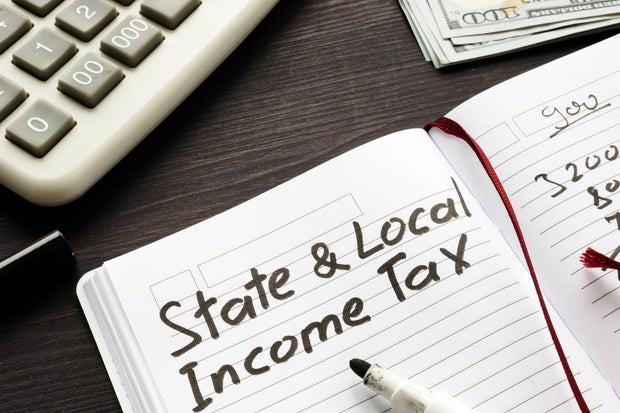How your taxes are impacted by changing residency
Moving to a new place can come with exciting opportunities and fresh perspectives, whether you're relocating to a new state for a job, retirement or simply seeking a change of scenery. But while a move can expand your horizons, what you may not realize is that changing your residency can also significantly impact your financial situation — and your tax obligations, in particular.
That's because when you change your residency, you're essentially changing your tax home. This shift can affect everything from your income tax rates to property taxes and even estate planning. Each state has a unique tax system, after all, with varying rates, deductions, exemptions and filing requirements. So, what might have been tax-free in your previous location could be heavily taxed in your new home, or vice versa.
The complexity of managing taxes across multiple jurisdictions makes residency changes one of the most overlooked aspects of relocation planning. Understanding these implications, then, can help you avoid unexpected tax bills and potentially save you money in the long run.
Chat with a tax specialist about how moving could impact your taxes.
How your taxes are impacted by changing residency
Here's what you need to consider about how your taxes could be impacted by changing your state of residency:
Changes in state income tax
One of the biggest tax changes you'll likely face when moving to a new state is income tax. Some states — such as Texas, Florida and Nevada — don't have state income tax, meaning you could see an immediate boost in your take-home pay if moving to these states. Others, like California and New York, have high income tax rates that could take a larger portion of your earnings.
And, some states have flat tax rates, where everyone pays the same percentage regardless of income level. States like Illinois, Indiana and Michigan use this approach. The remaining states use tax structures similar to the federal system, where higher incomes are taxed at higher rates.
If you move mid-year, you may need to file part-year resident tax returns in both your old and new states, meaning that what you pay for income tax could be spread across both states. Each state has its own rules for determining residency, so it's essential to check how many days you must be physically present in a state before you are considered a resident for tax purposes.
Get help with your existing tax obligations today.
Residency and domicile rules
Your tax obligations also depend on whether your new state considers you a resident. Residency is often determined by where you spend most of your time, while the domicile is your true, permanent home. If you move but still maintain ties to your previous state — such as a home, driver's license or voter registration — you might still be considered a resident there for tax purposes.
Similar to the federal government, some states have what's known as a "183-day rule," which means if you spend 183 days (about six months) in a state, you are generally considered a tax resident. Be mindful of this rule if you split time between two states, as you could inadvertently owe taxes in both places.
Property taxes and sales tax
Moving to a state that has no income tax doesn't mean you're completely off the hook for taxes. Property tax rates vary significantly from state to state and could be higher in your new location. Before buying a home, research the property tax rates and any exemptions you might qualify for, such as those for senior citizens or veterans.
Sales tax is another factor to consider. Some states, like Oregon and New Hampshire, have no sales tax, while others, like Tennessee and Louisiana, have some of the highest rates in the country. If you move from a high-tax state to a low-tax one, your everyday purchases might become more affordable — or vice versa.
Capital gains and retirement taxes
If you're retiring and moving to a new state, pay attention to how your new home taxes retirement income. Some states tax Social Security benefits, while others exempt them entirely. Pensions, 401(k) withdrawals and individual retirement accounts (IRAs) may also be subject to different tax rates depending on where you live.
Capital gains taxes can also be affected by residency. If you sell a home or investments after moving, you may be subject to capital gains taxes in your new state. In some cases, if you move right before selling a valuable asset, you might be able to avoid state capital gains taxes if your new state doesn't impose them.
The bottom line
Changing residency can have a major impact on your taxes, and the financial implications go far beyond just packing up and moving. Understanding state income tax rates, residency rules, property and sales taxes and how retirement income is taxed will help you make informed decisions. Before relocating, it may also benefit you to consult a tax professional to avoid unexpected tax liabilities and ensure a smooth transition. By planning ahead, you can make the most of the tax advantages that come with your new home.




